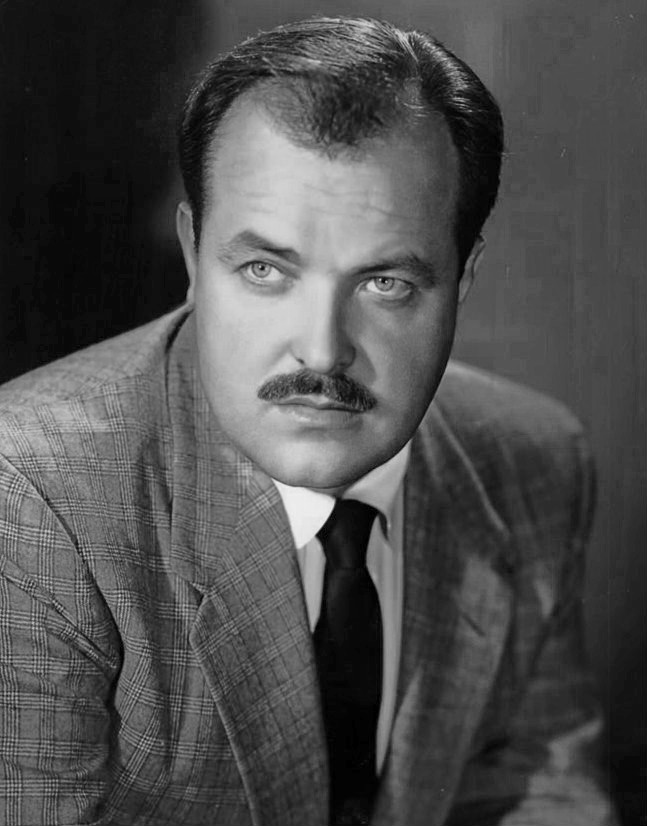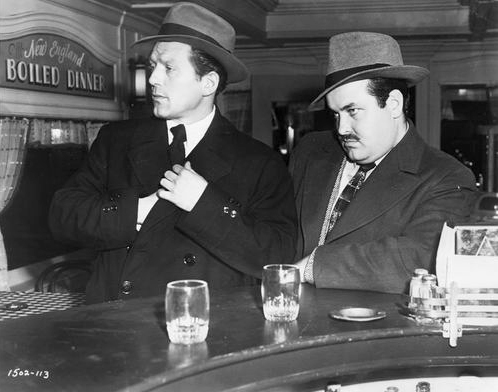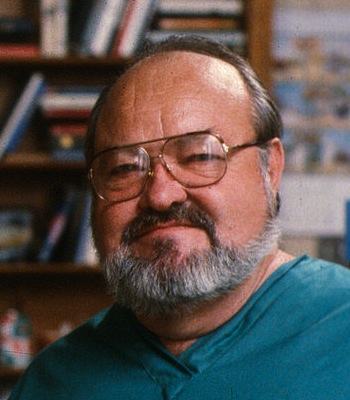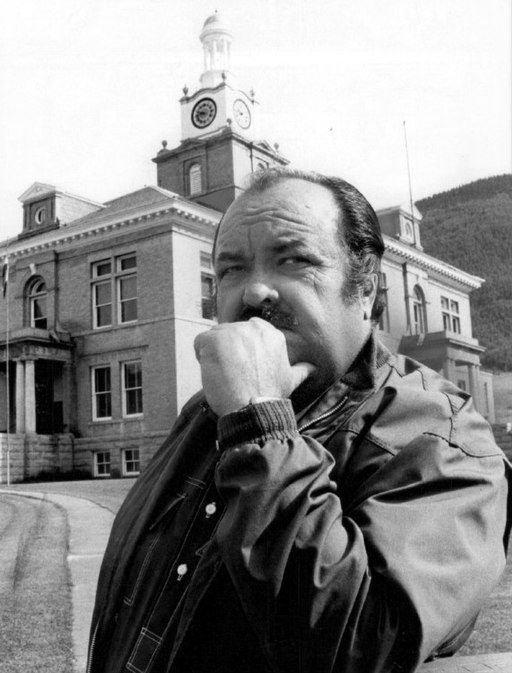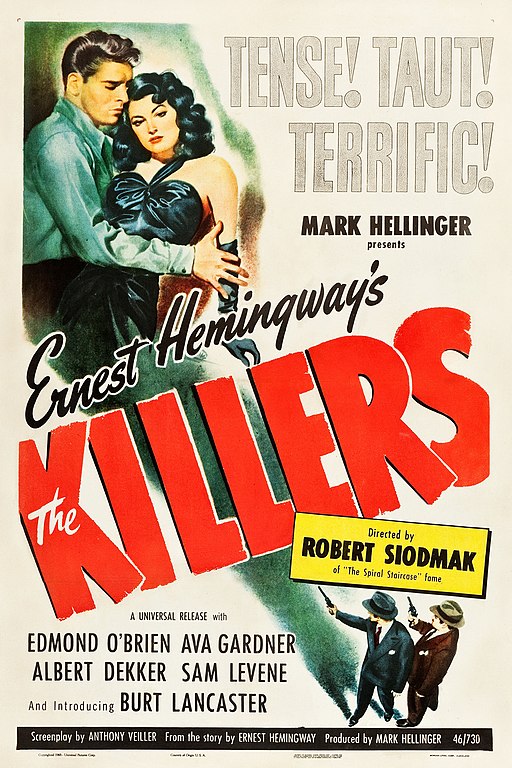William Conrad
back| Full Name | John William Cann Jr. |
| Stage Name | William Conrad |
| Born | September 27, 1920 |
| Birthplace | Louisville, Kentucky, U.S. |
| Died | February 11, 1994 |
| Buried | Forest Lawn Memorial Park in Los Angeles, California, U.S. |
| Married to | June Nelson (1943–1963), Susan Randall (1965–1972), Tipton Stringer (1977–1994) |
| Children | One son, Christopher |
| Notable films | The Killers - Canon (series) - Jake and the Fatman (series) |
William Conrad - "Wild Bill" William
William Conrad (1920-1994) was a versatile American actor, producer, and director whose deep voice and robust presence made him an enduring figure in both radio and television. Born in Louisville, Kentucky, he initially embarked on a career in radio, where his resonant voice found a home in countless roles, most notably as Marshal Matt Dillon in the original radio version of "Gunsmoke."
Transitioning to film, Conrad appeared in more than 50 movies, often cast as the heavy due to his commanding demeanor. Some of his notable roles include "The Killers" (1946) and "Sorry, Wrong Number" (1948). However, it was television that brought him widespread recognition. In the 1970s, he starred in the detective series "Cannon," followed by "Jake and the Fatman" in the 1980s. Both series showcased his talent for playing the tough yet empathetic protagonist.
Beyond acting, Conrad was an accomplished director and producer. He directed episodes of popular TV shows and even produced the wartime drama "Combat!" Despite health challenges later in life, including battles with obesity, Conrad's dedication to his craft and his storied career left an indelible mark on the entertainment industry. He passed away in 1994 at the age of 73.
Related
Complete biography William Conrad
Early Life
William Conrad was born in Louisville, Kentucky, in 1920. William’s early life hinted at his later vocation: his parents owned a movie theatre in Olustee, Oklahoma where the family moved after William’s birth. So it was no wonder that young William would create a passion about movie making and acting. He could see all new movies for free. When William was in his teens the family moved again to Downey California, a part of greater Los Angeles.
When William was just 18 his father died, difficult years for the family. His mother went working as a cashier at a theatre nearby. William went to Fullerton College in Los Angeles where he studied literature and drama. Just after this period he began working as an announcer (the early name for DJ) at KPMC radio station in LA. When World War II came William Conrad enlisted as a soldier at the US Air Corps. He was trained as a fighter pilot but also became producer and director of the Armed Forces Radio Service. Even then his distinctive baritone voice stood out, especially in the period that radio was the number 1 entertainment medium.
War and Initial Career
Serving as a fighter pilot, he engaged in over 40 combat missions. Post-war, Conrad found his way into the flourishing arena of radio, where his rich baritone became a staple in numerous productions, most notably as Marshal Matt Dillon in "Gunsmoke."
Film and Television Career
Despite being an iconic voice actor, William Conrad did not confine himself to the audio medium. His sturdy build and distinctive voice carved out a niche in film noir during the 1940s and 50s, such as in "The Killers" (1946). In television, Conrad found a new realm to explore. His notable role as Frank Cannon in "Cannon" (1971–1976) and "Jake and the Fatman" (1987–1992) where he played prosecutor J.L. McCabe, exemplified his skill at embodying characters that were both tough and sympathetically human.
His role as Frank Cannon in the series Cannon analyzed
Cannon TV Series (1971-1976)
Role: William Conrad played the title role, private detective Frank Cannon.
Character Analysis
- Physicality: One of the most distinguishing features of Frank Cannon was his portly appearance. Unlike many television detectives of the time, he was not portrayed as a suave or physically agile character. Instead, his physique often became a focal point, sometimes for self-deprecating humor but also to highlight his reliance on intellect over physicality.
- Intellect and Deduction: Frank Cannon's primary weapon was his mind. He demonstrated remarkable deductive skills, always piecing together complex puzzles to solve cases. He was a master of human psychology, which he used to his advantage when interrogating suspects or understanding the motives behind crimes.
- Empathy: Another important trait of Cannon was his genuine care for his clients. He often took on cases that touched him personally, showing a deep sense of empathy and commitment to justice. This made him more than just a hired hand; he often became emotionally invested in his cases.
- Tough but Fair: While Cannon was undoubtedly a kind-hearted individual, he wasn't someone to be trifled with. He could be tough when the situation called for it, especially when confronting antagonists or when his own life was in danger.
- Independence: Cannon was a private detective, not tied to any police department, which allowed him a certain freedom in how he approached cases. This independence often allowed him to go against conventional wisdom or navigate around red tape to solve a case.
- Backstory: The series occasionally alluded to Cannon's backstory, giving depth to his character. He was a former police officer, and his wife and child had been killed in a car bomb meant for him, leading him to become a private detective. This tragic past provided a foundation for his sense of justice and his emotional investment in his work.
Impact of the Role:
William Conrad's portrayal of Frank Cannon was influential in showing that a leading man on television didn't need to fit a conventional mold. His success in the role proved that character depth, intelligence, and genuine emotion could resonate with audiences as much as, if not more than, traditional action-hero traits. "Cannon" broke the mold of what a TV detective could look like and how they could operate, paving the way for a broader range of characters on television in subsequent years.
His role as "Fatman" McCabe in Jake and the Fatman analyzed
Jake and the Fatman (1987-1992)
Role: William Conrad played District Attorney J.L. "Fatman" McCabe
Character Analysis
- Nickname "Fatman": Just like in "Cannon," Conrad's size is acknowledged in the title and his character's nickname, "Fatman". The show played on this physical trait, but also demonstrated that it wasn't his defining feature.
- Law and Order: Unlike his role as a private detective in "Cannon", in "Jake and the Fatman", Conrad portrayed a district attorney, symbolizing law and order. This position required him to work within the bounds of the legal system, but he was still portrayed as a determined and sometimes unconventional prosecutor.
- Dynamic Duo: The show revolves around the partnership between McCabe (Conrad) and investigator Jake Styles, played by Joe Penny. Their dynamic was central to the show, with McCabe providing the legal acumen and Styles handling the investigative legwork. The rapport between the two characters was integral to the series' charm.
- Principled and Steadfast: McCabe was characterized by his unwavering sense of justice. He was depicted as principled and staunch in his pursuit of the truth, often clashing with adversaries in the courtroom but maintaining a moral high ground.
- Mentorship: Throughout the series, McCabe acts as a mentor to Jake Styles. Their relationship is symbiotic; while Jake learns the ropes of legal work and the intricacies of prosecution from McCabe, McCabe also occasionally gains insight and perspective from Jake's fresh approach.
- Setting: The show's locales changed during its run, starting in Los Angeles before moving to Hawaii and then to San Diego. These settings provided a scenic backdrop for the episodes and allowed for a variety of cases and situations.
Impact of the Role
William Conrad's portrayal of J.L. "Fatman" McCabe added another layer to his legacy of TV characters. While Frank Cannon was an independent force, McCabe was entrenched within the system, showing another facet of Conrad's acting abilities. He depicted a powerful, yet grounded figure in the legal world, proving once again that leading characters on TV can resonate with audiences without fitting a stereotypical mold. Through "Jake and the Fatman", Conrad solidified his status as a versatile actor capable of handling roles that break away from convention while still being deeply rooted in character and principle.
Directorial and Production Endeavors
Beyond acting, Conrad found himself involved in production and direction. His directorial prowess was witnessed in features like "Two on a Guillotine" (1965) and "Brainstorm" (1965). Furthermore, his production company, "Conrad Productions," generated numerous shows, allowing him to delve into various facets of storytelling and entertainment.
William Conrad spouses
1. June Nelson
- Married: April 12, 1943
- Divorced: 1957
William Conrad married June Nelson right after he was discharged from the Army during World War II. While the couple stayed together for several years, details of their life together are not widely known due to the private nature of their relationship. June and William’s marriage lasted through significant portions of his early career, and they divorced in 1957. There isn't much detailed public information about June Nelson's life and career.
2. Susan "Suzy" Randall
- Married: 1957
- Divorced: Not applicable, as she passed away during the marriage.
- Children: Christopher Conrad
Suzy Randall, a fashion model, became William Conrad’s second wife shortly after his divorce from June Nelson in the same year, 1957. William and Suzy had a son, Christopher Conrad, during their marriage. Suzy supported William during pivotal times in his career, which spanned numerous successful TV series and movies. Suzy Randall unfortunately passed away from breast cancer in 1979, ending their marriage in sorrow.
3. Tipton "Tippy" Stringer
- Married: May 01, 1980
- Divorced: Not applicable, as they remained married until his death.
William married Tippy Stringer in Los Angeles in 1980. Tippy, born in 1930 and passing away in 2010, was a significant figure in the television industry and was previously married to NBC newscaster Chet Huntley before becoming William’s third wife. Tippy played a crucial role in managing William’s career during their 14-year marriage until his death in 1994. Her involvement in the TV industry and experience provided a supportive and understanding backbone for their personal and professional lives.
Awards and nominations for William Conrad
Primetime Emmy Awards
- 1971: Nominated for Outstanding Continued Performance by an Actor in a Leading Role in a Dramatic Series for "Cannon."
- 1972: Nominated for Outstanding Continued Performance by an Actor in a Leading Role in a Dramatic Series for "Cannon."
- 1973: Nominated for Best Lead Actor in a Drama Series for "Cannon."
- 1980: Nominated for Outstanding Lead Actor in a Drama Series for "Jake and the Fatman."
Golden Globe Awards
- 1972: Nominated for Best TV Actor - Drama for "Cannon."
- 1974: Nominated for Best TV Actor - Drama for "Cannon."
Western Heritage Awards
- 1954: Won the Bronze Wrangler for Fictional Television Drama for "Gunsmoke" (shared with the cast and crew).
Hollywood Walk of Fame
- In recognition of his contributions to radio, William Conrad received a star on the Hollywood Walk of Fame in 1979.
Other Honors
- William Conrad also received recognition and accolades for his narration work, particularly for the "Rocky and Bullwinkle" cartoons.
Death and Legacy
William Conrad passed away on February 11, 1994, in Los Angeles, California. His death was attributed to congestive heart failure.
He is interred in the Forest Lawn Memorial Park Cemetery in Hollywood Hills, Los Angeles, California, USA. This cemetery is the final resting place for numerous celebrities and is known for its beautiful grounds and solemn atmosphere.
Throughout the 70s and 80s, Conrad remained a familiar face on television while also lending his voice to various animated series and commercials. The subsequent years witnessed a continuation of both on-screen and voice work, including narrations that capitalized on his unmistakable vocal timbre.
In the twilight of his career, William Conrad was celebrated for his contributions to the industry, earning stars on the Hollywood Walk of Fame for both his radio and television work. His death in 1994 was a poignant moment, marking the end of an era where his voice had become emblematic of American entertainment for over five decades.
In memoriam, William Conrad leaves behind not just a prolific catalog of work, but a legacy embellished with the spirit of an era. His career traversed distinct mediums, bearing witness to the evolution of entertainment across the mid to late 20th century.
Conrad was not only a figure in Hollywood but also a conduit through which stories flowed — a warm, familiar presence that spanned generations. In radio, film, television, and beyond, his work continues to echo, a timeless reminder of the resonant voice and affable nature of a truly remarkable actor and creator. His legacy remains firmly embedded in the annals of Hollywood’s rich history, and his contributions continue to be celebrated by aficionados of classic American entertainment.
Movies featuring William Conrad
1940s
- 1946 - "The Killers" (as Max)
1950s
- 1950 - "Dial 1119" (as Lt. Keiver)
- 1952 - "The Battle at Apache Pass" (as Narrator)
- 1952 - "The Desert Song" (as The Kâbir)
- 1952 - "Scandal Sheet" (as Mark Chapman)
- 1953 - "The Island of the Dead" (as Rienzi)
- 1953 - "Sky Full of Moon" (as Al)
- 1954 - "The Miami Story" (as Tony Brill)
- 1958 - "The Ride Back" (as Chris Hamish)
1960s
- 1961 - "12 to the Moon" (as Gen. 'Pappy' Arnold)
- 1961 - "My Blood Runs Cold" (as Julian Merriday)
- 1963 - "Johnny Cool" (as Correspondent)
- 1964 - "Brainstorm" (as Cort Benson)
- 1965 - "Two on a Guillotine" (as John Harley 'Duke' Duquesne)
- 1965 - "Young Dillinger" (as Captain Matt Leary)
1970s
- 1971 - "The Day of the Wolves" (as Pete Anderson)
- 1971 - "Red Sky at Morning" (as John Brown)
- 1973 - "The Man Who Loved Cat Dancing" (as Harvey Lapchance)
1980s
- 1981 - "The Return of the King" (as Denethor)
- 1982 - "Don't Cry, It's Only Thunder" (as Gen. McKulick)
Series featuring William Conrad
1950s
- 1959-1960 - "Bat Masterson" (Narrator)
1960s
- 1965 - "77 Sunset Strip" (Guest Star)
- 1965-1968 - "The Fugitive" (Narrator)
- 1969 - "The Outsider" (Narrator)
1970s
- 1971-1976 - "Cannon" (Frank Cannon) — This was one of his most iconic roles, where he portrayed a private detective.
- 1973 - "Hec Ramsey" (Guest Star)
- 1977 - "The Red Hand Gang" (Guest Star)
- 1977-1978 - "The Hardy Boys/Nancy Drew Mysteries" (Guest Star)
- 1978 - "How the West Was Won" (Guest Star)
- 1979-1980 - "Nero Wolfe" (Nero Wolfe) — He played the iconic detective Nero Wolfe in this series.
1980s
- 1980-1982 - "Buck Rogers in the 25th Century" (Narrator)
- 1980 - "The Duke" (Duke Ramsey)
- 1980-1988 - "Jake and the Fatman" (D.A. J.L. 'Fatman' McCabe) — Another of his well-known roles, co-starring with Joe Penny.
- 1987 - "Matlock" (Guest Star)
1990s
- 1995-1996 - "Hudson Street" (Tony Canetti)
Notable Voice Roles in Animation
- 1960-1966 - "The Rocky and Bullwinkle Show" (Narrator / Various Characters)
- 1964 - "Jonny Quest" (Various Characters)
- 1969-1970 - "The Dudley Do-Right Show" (Narrator / Various Characters)
- 1980-1982 - "The Fonz and the Happy Days Gang" (Narrator)

